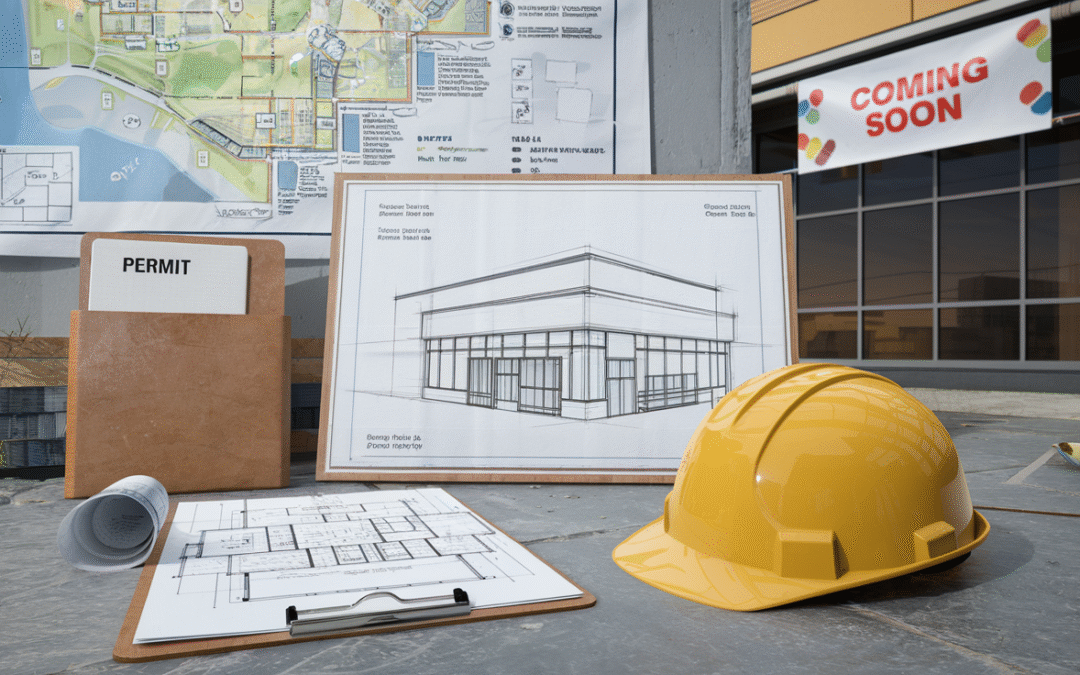Key Permitting Requirements for Grocery Stores in Marin County
Launching a grocery store in the Bay Area, and specifically in Marin County, requires navigating a complex permitting landscape. This process is critical for ensuring compliance with local regulations and ultimately getting your doors open to the public. By understanding the grocery store permitting Bay Area requirements, property developers and investors can better prepare their projects for success. In this blog post, we’ll explore the key steps involved in obtaining necessary permits for grocery stores, provide insights on common challenges, and highlight how iBuild Design and Construction can guide you from concept to completion.
Table of Contents
- Understanding the Bay Area Permitting Landscape
- Essential Permits for Grocery Stores
- Navigating the Approval Process
- Common Challenges in Grocery Store Permitting
- How iBuild Design and Construction Can Help
- Conclusion
- Partner with iBuild
Understanding the Bay Area Permitting Landscape
The Bay Area is known for its diverse and vibrant communities, but it’s also characterized by a rigorous permitting process that reflects its commitment to maintaining high environmental and safety standards. Navigating this landscape requires a deep understanding of local zoning laws, building codes, and health regulations. In Marin County, each city may have unique requirements that you will need to address to move forward effectively. It’s worthwhile to engage with professionals who have in-depth knowledge of these regional nuances.
Essential Permits for Grocery Stores
Building Permit
The first step in grocery store permitting involves securing a building permit. This permit verifies that your planned construction meets local building codes and zoning regulations. Factors such as store layout, accessibility, structural integrity, and even aesthetic guidelines must comply with county standards.
Health Department Approval
Grocery stores must also obtain approval from the local health department, ensuring that all food handling practices and facilities meet public health standards. This includes areas like fresh produce cooling, meat preparation sections, and storage regulations.
Signage Permit
Having the right signage is not just about branding—it’s also a compliance issue. Your signage must meet local aesthetic and safety standards, which requires obtaining a specialized permit.
Environmental Permits
Marin County places a high emphasis on environmental sustainability. Depending on your store location, you might need additional permits related to waste management, energy consumption, and green building certification.
Navigating the Approval Process
Securing the necessary permits can be a time-consuming endeavor, often involving multiple rounds of submissions and revisions. Here are key steps for effectively traversing this process:
Conduct a Site Analysis
Conducting a site analysis is critical in identifying potential zoning or environmental issues early on. This analysis helps developers understand what is feasible and paves the way for a smooth permitting process. Learn more about iBuild’s site analysis services.
Engage with Stakeholders Early
Building relationships with local authorities and community groups at the start can mitigate opposition and facilitate approvals. Transparent communication ensures that any concerns are addressed promptly.
Prepare Comprehensive Submissions
Ensure that all documentation—such as architectural plans and engineering reports—is complete and meticulously aligns with county specifications. Incomplete or non-compliant submissions are the primary reason for permit delays.
Monitor and Follow Up
Even after submission, proactive follow-up with permitting departments is advised. Use online tracking tools where available to stay informed about your permit’s status.
Common Challenges in Grocery Store Permitting
Permitting a grocery store in the Bay Area is not without difficulties. Common challenges can range from unexpected environmental site restrictions to changing zoning codes. Here’s how you can navigate some scenarios:
Scenario 1: Environmental Hurdles
In one instance, a client experienced delays due to the discovery of protected wetlands on their site. Prior comprehensive environmental assessments and engaging specialists enabled the business to redesign the site plan, eventually receiving necessary approvals without compromising project timelines significantly.
Scenario 2: Community Opposition
An iBuild project client who faced initial resistance from the local community was able to succeed by hosting information sessions and tailoring design elements to reflect community values, resulting in an embraced project and a revitalized community space.
How iBuild Design and Construction Can Help
Choosing the right partner can make a significant difference in the permitting process. At iBuild Design and Construction, we offer a streamlined, architect-led approach that integrates design and construction services under one roof. Our extensive experience with grocery store build-outs ensures that every aspect of zoning, design, and building code compliance is expertly managed. Whether securing necessary environmental permits, managing stakeholder engagement, or optimizing construction phases, iBuild ensures your project is completed on time and within budget. Learn more about our extensive range of services by visiting our services page.
Conclusion
Launching a grocery store in the Bay Area, particularly Marin County, presents a unique mix of opportunities and challenges. Understanding the permitting requirements and anticipating potential obstacles can save developers time and resources. By aligning with a trusted partner like iBuild Design and Construction, you are better equipped to navigate these complexities with confidence, ensuring successful, timely completion of your project while meeting all regulatory requirements.
Partner with iBuild
If you’re ready to move forward with a grocery store project in Marin County or surrounding Bay Area locations, consider partnering with iBuild Design and Construction for a seamless, integrated experience from design to completion. Contact us today to discuss your vision and start bringing your project to life.

